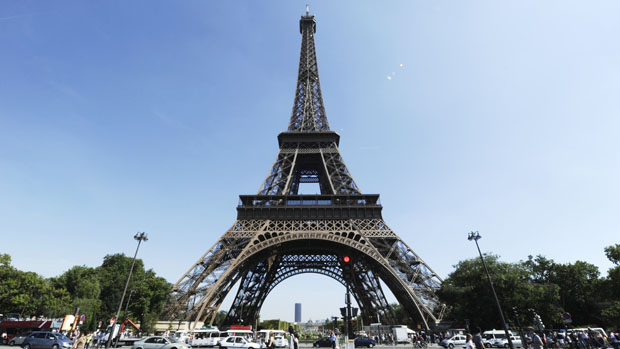Paris drones: mystery continues despite arrests
Police insist there is no need to worry as drones appear again over the capital, 'but we should be vigilant'

A free daily email with the biggest news stories of the day – and the best features from TheWeek.com
You are now subscribed
Your newsletter sign-up was successful
French police admit they are baffled over who was operating the drones that were seen over key landmarks in Paris for two nights in a row.
Three Al-Jazeera journalists were arrested yesterday for illegally flying a drone while making a report of their own about the mysterious night flights, The Guardian reports.
But police confirmed that there was no known link between the arrests and the drones that had been seen earlier in the week.
The Week
Escape your echo chamber. Get the facts behind the news, plus analysis from multiple perspectives.

Sign up for The Week's Free Newsletters
From our morning news briefing to a weekly Good News Newsletter, get the best of The Week delivered directly to your inbox.
From our morning news briefing to a weekly Good News Newsletter, get the best of The Week delivered directly to your inbox.
According to French media there were five more sightings between 11pm on Tuesday and 2am (1am GMT) on Wednesday. Drones had also been spotted near the Eiffel Tower and above the US embassy in the early hours of Tuesday.
Up to three drones were seen flying above the Place de la Concorde, the Invalides museum and Paris's old city gates last night.
It is illegal to fly drones in France at night and operating them during the day is governed by strict regulations.
In a public statement, government spokesman Stephane Le Foll sought to allay concerns about the drones: "There's no need to worry," he said, "but we should be vigilant, it's a subject being taken very seriously".
A free daily email with the biggest news stories of the day – and the best features from TheWeek.com
Le Foll said that police were doing everything they could to apprehend those responsible for the flights.
The security threat from drones is minimal, says the BBC's Paris correspondent Hugh Schofield. The footage such drones can capture does not offer any information that could not be obtained from the likes of Google Maps or other online bird's eye imagery providers.
Also, small shop-bought drones, like the ones that have been seen over Paris, "are not strong enough to deliver a significant payload of explosives".
The main risk the drones present is thought to be to pedestrians and motorists – which is why flying them is banned at night.
Still, even though the flights are probably the work of drone enthusiasts, police "cannot afford to ignore them", Schofield adds, as they could be the work of some unknown group testing out how France's security forces respond to drones.
Mystery drones over Paris raise 'terrorist fears'
24 February
At least five drones were seen by police flying over significant sites in Paris between 1am and 6am today, including the Eiffel Tower and the US embassy, in what they say may have been a "coordinated action".
The French capital is still on high alert following the joint attacks on the offices of the satirical magazine Charlie Hebdo and a kosher supermarket last month.
The first of the drones was spotted by police guarding the US embassy near the Champs-Elysées at 1am. Others were seen flying over the Eiffel Tower, Invalides military museum and the Place de la Concorde, a police source told the Daily Telegraph.
"It could be a coordinated action but we don't know yet," the source added.
None of the operators has yet been caught, the BBC reports. An inquiry has now been launched into the drone that flew over the US embassy.
"We did all we could to try to catch the operators but they weren't found," police said.
Drones have also been flown in recent months over the president's official residence, the Elysée Palace, and 17 nuclear sites in France.
According to the Daily Telegraph last night’s sightings have "raised public fears" that terrorists may be planning to use drones to "deliver explosives or toxic chemicals". The BBC says that even cheap drones are capable of capturing high-quality video footage, but it is not yet clear whether those seen in Paris "were being used maliciously or simply by enthusiasts".
In France it is illegal to fly small civilian drones over certain protected areas such as nuclear facilities, Sky News reports. Sensitive sites are protected by no-fly zones that span a 1.6-mile radius to a height of 1,000 metres.